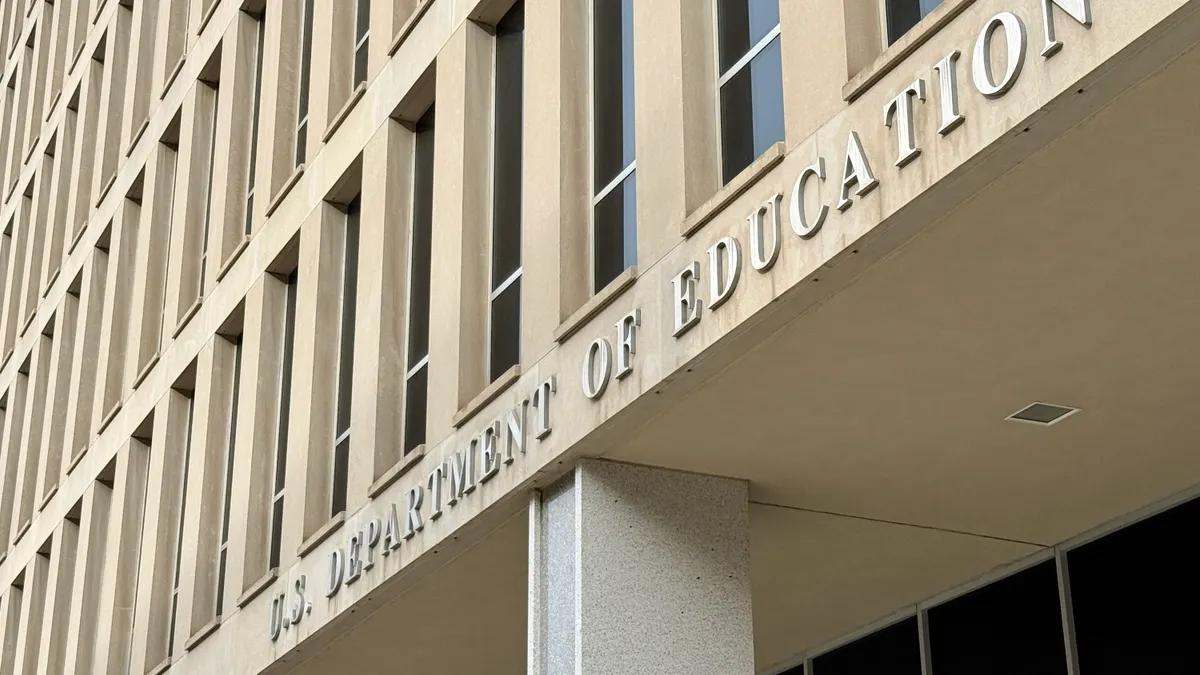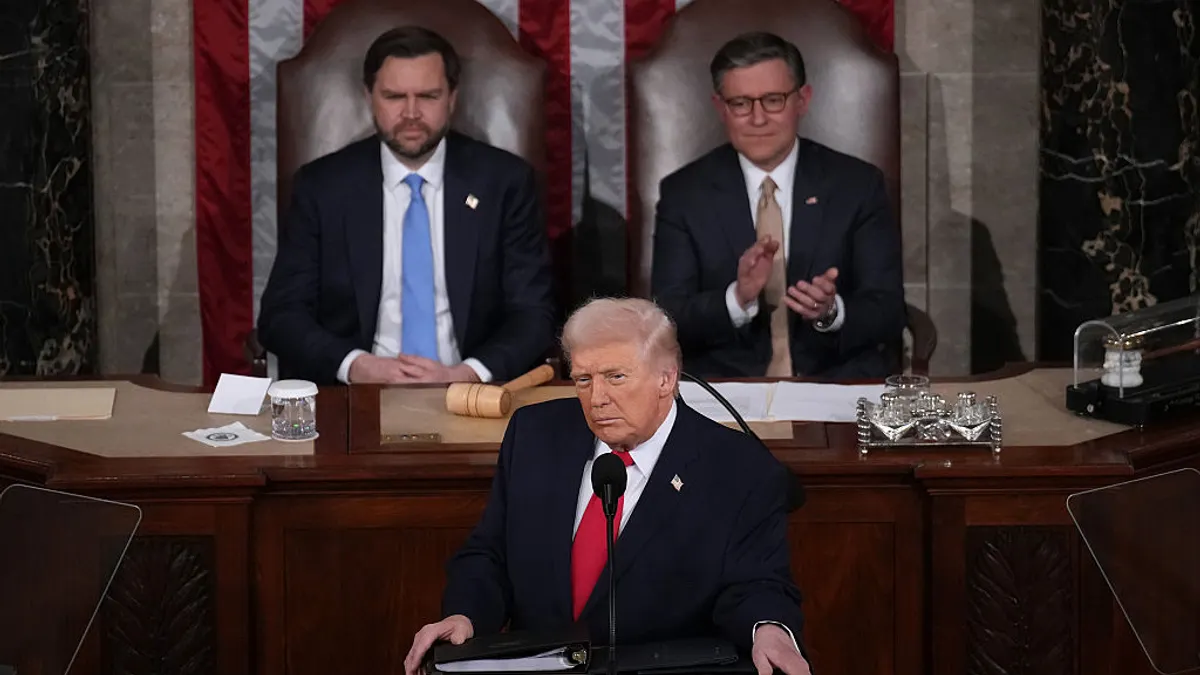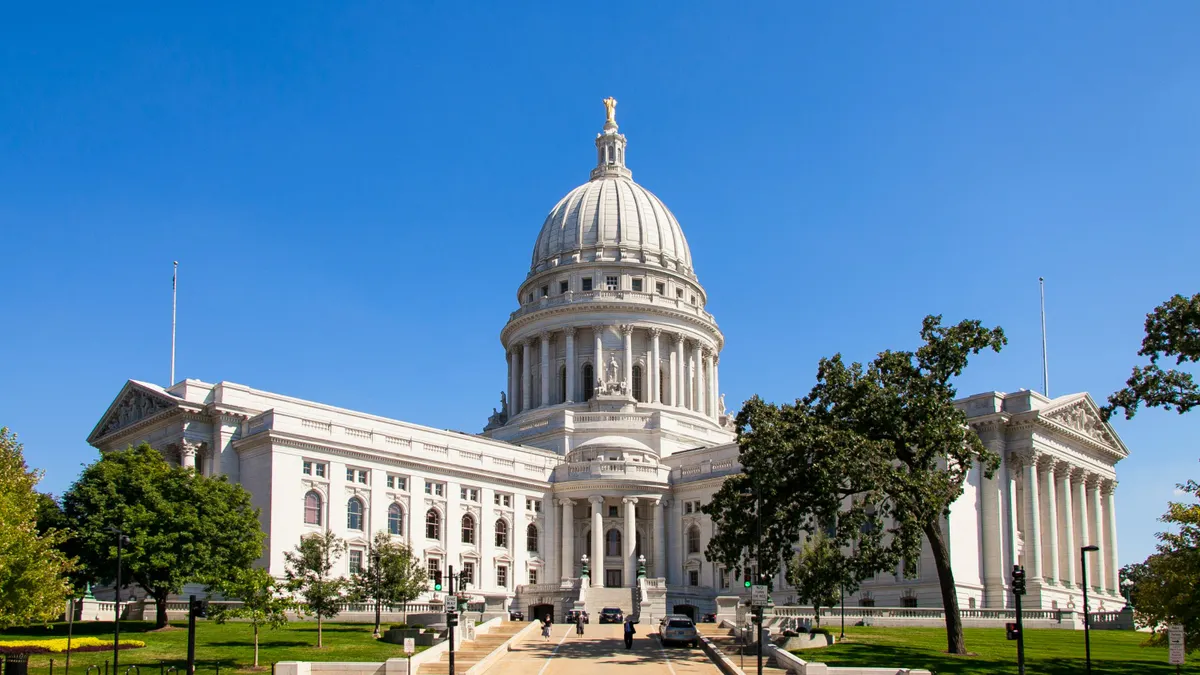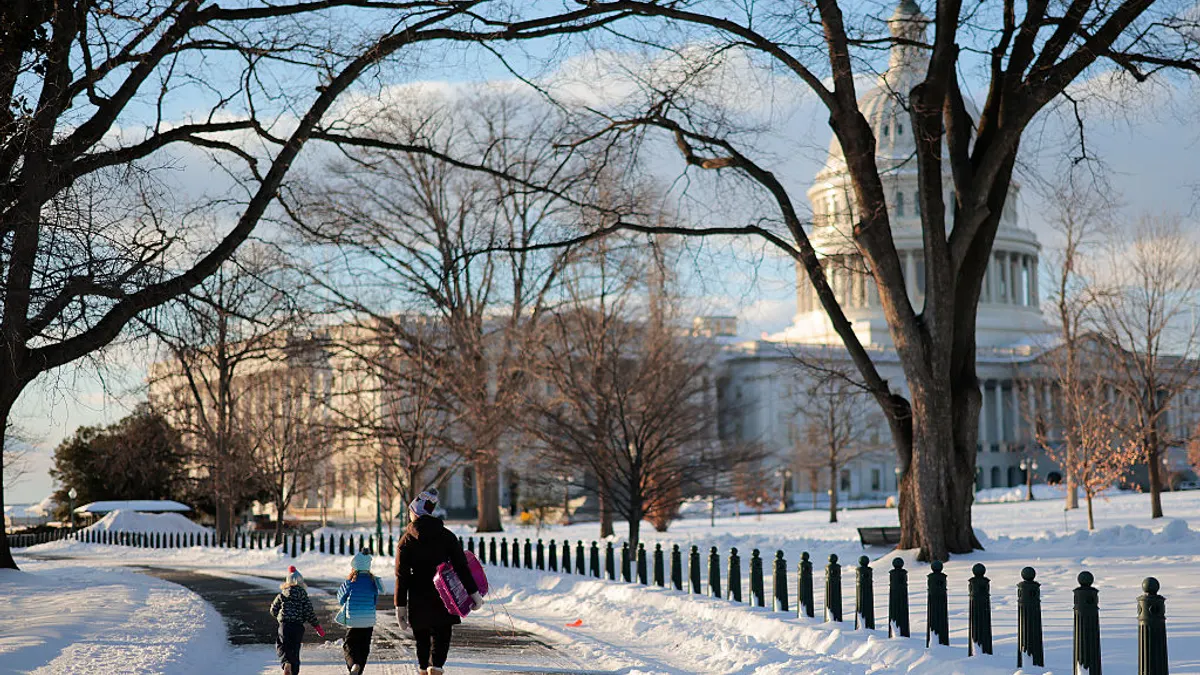School districts and states are increasingly challenging the U.S. Department of Education's authority as it continues its crackdown on diversity, equity and inclusion policies and practices, especially those related to LGTBQ+ students.
The trend is a departure from the typically collaborative relationship between the federal agency and the K-12 sector, and it is emerging despite the Trump administration's attempts to strong-arm compliance with its new policies by withholding federal funds.
"The norm has always been that the local district and the states and the federal government would form a partnership," said Kenneth Wong, an education policy researcher and former professor at Brown University. Wong is now the director of the School of Governance and Policy at The University of Hong Kong.
Following or during Office for Civil Rights investigations, districts would typically sign onto resolution agreements with the Education Department to remedy discrimination and harassment complaints. In the end, both parties seemingly benefited: The federal government would oversee sometimes years-long policy and practice changes as part of states' and districts' efforts to comply with federal law, and districts and states had an avenue to settle federal investigations and avoid funding loss.
"The Trump administration has now put in place one policy after the other, one executive order after the other, and one practice after another that, if you add all of them up, cumulatively amount to a major kind of effort to depart from this historic partnership," said Wong.
Shortened timelines, conflicting laws and ideological divides
In the past, Education Department civil rights enforcement practices lent themselves to systemic change on issues like racial harassment and sex- or disability-based discrimination. But Trump administration enforcement efforts are increasingly leading to legal battles, particularly over Title IX — including whether to keep transgender students out of girls' and women's athletics and school facilities.
In a recent example, Virginia's Fairfax County School Board and Arlington School Board separately sued the Education Department in late August after the agency decided the districts had violated Title IX by allowing transgender students access to sex-segregated facilities aligning with their identities.
Title IX protects students and employees from sex-based discrimination in education programs that receive federal funding. The question of whether LGTBQ+ students, including transgender students, are protected under the statute has ping-ponged across Democrat and Republican administrations.
Republican leaders, including those overseeing the current Education Department's civil rights enforcement arm, say that giving transgender students access to restrooms and athletic teams aligning with their gender identities jeopardizes cisgender students' safety and athletic accomplishments. As such, the Trump administration gave the two Virginia districts, in addition to three other neighboring ones, only 10 days to agree to its terms or risk a referral to the U.S. Department of Justice — despite the five Northern Virginia districts asking for the typical 90-day period to respond.
"OCR is not allowing the time that they need to come to some sort of a negotiated resolution with districts or states," said Nancy Potter, former supervisory attorney and team leader at the Office for Civil Rights between 2015 and 2019. "I think it's more of a change in OCR than it is a change of states and districts," said Potter, who is the founder of education law firm Potter Law and assists Title IX administrators through consulting firm Title IX Solutions.
The timeline for institutions to agree to resolution agreements is up to OCR’s discretion, and it varies according to the facts of each case and whether the entity is making a good faith effort to come into compliance with OCR's civil rights enforcement, an Education Department spokesperson told K-12 Dive in a Sept. 23 email.
The expedited timeline, threat of Justice Department referrals and threats to federal funding are putting districts and states that are bound by laws or court precedent in conflict with the administration's Title IX interpretation in a tough spot. That's largely what's pushing them to challenge the administration in court, experts said.
"This is a little bit unprecedented," said Kayleigh Baker, who works with school districts on Title IX compliance as a senior consultant with TNG Consulting and as an advisory board member of the Association of Title IX Administrators.
California, for example, sued the U.S. Department of Justice in June "in anticipation of imminent legal retaliation against California’s school systems” after the state flouted the federal government's warnings and guided its districts to allow transgender students to play on sports teams aligning with their gender identities.
The Justice Department earlier that month had sent a letter to California school districts saying they were “exposed to legal liability” after a transgender athlete won gold in a state high school girls’ track and field championship over the summer. The agency required California districts to certify that they were not allowing transgender students to play on teams aligning with their gender identities — a move that would violate long-standing California state law requiring that inclusion.
Instead, California sued by the June 9 certification deadline, after state Superintendent Tony Thurmond told districts the state would respond to the administration on their behalf. That lawsuit is still pending.

Behind the building resistance to OCR enforcement among some education systems is also a sense that these states and districts are supporting LGBTQ+ students and are allowing for "safe spaces" for them, say education leaders. But as a result, states and districts are increasingly feeling like they have a target on their backs, Title IX advisors and education leaders have said.
Denver Public Schools, an early focus of the administration's "directed" Title IX investigations back in January, said as much in a Sept. 2 statement after OCR found it in violation of Title IX in late August. Directed investigations are cases launched by the department without formal complaints having been filed by an outside party.
"What is striking about OCR’s process is what they did not do. They did not visit East High School. They did not interview students, staff, or community members. They did not independently verify the claims they now cite," said the Denver Public Schools Board of Education in the statement. "Instead, they issued conclusions using an approach that departs from established investigative practice and advances an inscrutable interpretation of Title IX."
The board said its decision to implement gender-neutral restrooms resulted from feedback by LGTBQ+ students who said they did not feel safe.
"For these students, access to a restroom where they feel secure is not symbolic," the board said. "It is about dignity, health, and the ability to learn."
Denver has not legally challenged OCR, but said "while we determine next steps, our values remain unchanged."
The cost of LGBTQ+ support
Decisions to challenge OCR findings, meanwhile, have come with a heavy price tag under the Trump administration.
Fairfax said in its lawsuit, for example, that federal appellate court precedent "binds FCPS" as it is "controlling law" in the 4th Circuit, as opposed to the Trump administration's interpretation of Title IX. The administration moves, meanwhile, have cost the district $167 million in federal funds, it says.
That includes $61 million allotted for food and nutrition for low-income students, $41 million for services to students with disabilities, and another $64 million to support students experiencing homelessness, English learners, career and technical education, and professional development for teachers and administrators.The school system said in its most recent court filing on Sept. 25 that the department “already withheld and will certainly continue to withhold reimbursements.”
Arlington relies on $23 million in federal funding, including for school food and special education purposes.
"We recommend you ask entities which willingly and continuously violate federal law why they are willing to risk their funding for their illegal activity," said Julie Hartman, a Department of Education spokesperson, in a statement emailed to K-12 Dive on Sept. 23.
The Education Department maintains that it has not cut funding from these districts, which it has threatened to do in other cases including against the Maine Department of Education.
Rather, has flagged these schools as "high-risk" in its internal systems for when the districts apply for discretionary grants, and it will only be providing federal funding through reimbursements, said Madison Biedermann, an Education Department spokesperson. That means the districts will now be required to pay their education expenses up front and then request reimbursement for expenditures to access Education Department funding.
As districts are already cash-strapped, filing legal challenges to claw back or preserve their federal funding only compound their difficulties, Title IX advisors say. To help them deal with this situation, they said districts could take advantage of pro bono legal services, form coalitions and turn to civil rights organizations for assistance in challenging the administration, they added.
Meanwhile, the Trump administration has moved to make its strategy of expediting investigation timelines and cutting federal education funding the new norm.
In its 2025 unified agenda, which is used to set administration priorities set the schedule for new regulations, the administration said it intends to codify enforcement Title IX and Title VI in a way "that such procedures are consistent with statutory requirements while streamlining the process by which OCR seeks termination of Federal financial assistance to institutions that intentionally violate Federal civil rights laws and refuse to voluntarily come into compliance."
Title VI is the civil rights law protecting students from race-based discrimination. It has historically been invoked to protect the rights of historically marginalized students, including when they are overrepresented in school discipline — and especially exclusionary discipline — data. However, the current administration has used the law to protect White and Asian students, sometimes at the expense of DEI efforts meant to level the playing field for those historically marginalized groups.
"We know that the Trump administration is coming at these schools for noncompliance in every way possible," Baker said. "It's death by 1,000 cuts."





















